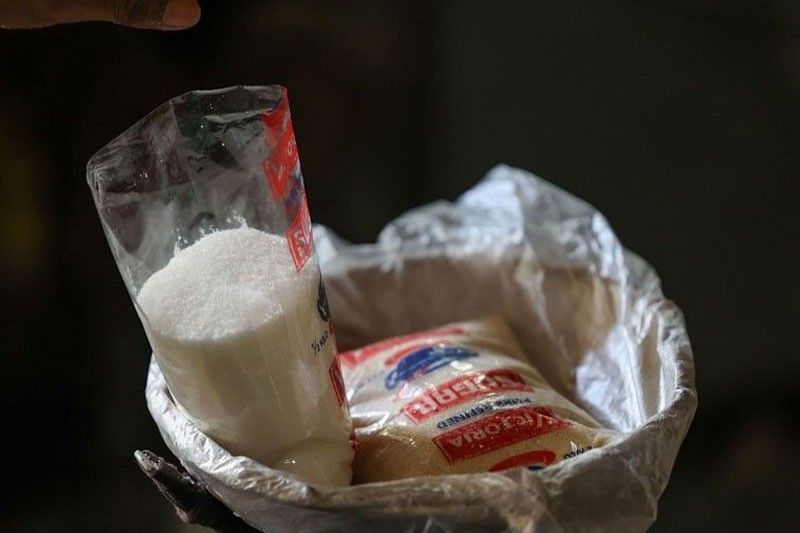Sugar millers oppose new ‘sweet tax’

MANILA, Philippines — The Philippine Sugar Millers Association (PSMA) yesterday opposed the plan of the Department of Finance (DOF) to increase the tax on sweetened beverages to P12 by next year.
PSMA executive director Jesus Barrera maintained that what should be done is to ensure efficient collection of excise tax.
“Instead of focusing on increasing tax rates, DOF should prioritize the enforcement of existing laws to ensure compliance and fairness,” Barrera said.
Barrera noted that just recently, the Bureau of Internal Revenue (BIR) raided a warehouse in Cavite as a beverage maker failed to pay P800 million in excise taxes, as well as three supermarkets in Quezon City for distributing untaxed sweetened beverages.
“The latest efforts of the BIR to inspect manufacturers and retailers on their payment of the excise tax are commendable. The additional revenue can be realized from the thorough enforcement of the existing tax laws. Furthermore, what purpose does it serve to raise tax rates if there exist individuals or companies that fail to adhere to them?” he said.
According to Barrera, improving the tax collection will not create an adverse impact on affected sectors yet it will achieve the government’s health and revenue objectives.
“The significance of an effective tax collection mechanism extends beyond public health concerns. It offers a reliable source of revenue for the government that is directed towards essential public services and reinforces public trust, particularly in the aftermath of the pandemic as the economy recovers,” he added.
Barrera said the DOF should reconsider its proposal and engage in a comprehensive dialogue with all stakeholders, including sugar millers, sugarcane farmers and industry experts.
DOH support
On the other hand, the Department of Health (DOH) has expressed support for the proposal to impose additional taxes on junk food and sweetened beverages.?The DOH said the measure can help provide additional funding for the Universal Health Care (UHC) program.
“We still need to pay for more health programs and services. Hence, the DOH supports any measures which may provide additional money to do UHC,” said the DOH in a statement.
The DOH likewise said, “Because of health taxes, the DOH-wide budget for 2023 is five times higher than what it was ten years ago.”?At the same time, the health department expressed belief that it would be an essential tool in helping reduce public consumption of unhealthy food and drinks.
“The DOH recognizes the potential benefits of imposing a health tax or excise tax on unhealthy food and beverages to reduce the burden of malnutrition and non-communicable diseases,” it said.
The health department said this proposal could have the same positive effect as when taxes were imposed on alcoholic drinks and tobacco products, which gave the DOH more money for its health programs and lessened public consumption, thus leading to better health, the DOH added.
Awaiting proposals
Meanwhile, the House committee on ways and means is still studying the “best form of junk food tax, or whether to do it at all” as the DOF and DOH have not submitted their respective proposals for a tax on salty food.
According to panel chair and Albay Rep. Joey Salceda, they are still waiting for the two agencies’ proposals, which still have to go through “the usual tests the committee applies.”
“Who pays for it? What are its macroeconomic impacts? What are the costs and benefits? What are other countries doing? And what do we do if something goes wrong?” he said of what the panel wants to know from the proposals.
He noted the committee also has not received “a formal bill from the DOF on sweetened beverages.”
The lawmaker underscored that the decision on taxing salty food will depend on this data.
The panel, he said, will also look at the “inflationary impact” of taxing junk food “because there will definitely be price implications on taxes on food.”
Salceda said his panel is open to junk food taxes but it will prioritize taxes “that are clearly progressive and hit the rich first.”
“Progressivity is definitely the first priority, because that is the only quality of tax measures that the Constitution specifically requires. So, taxes that hit the rich come before taxes that hit the family table,” he added.
Salceda, however, cautioned that the Philippines is “just in the median of obesity rates in the region, while having the highest sweetened beverage levies in ASEAN.”
“As for salt, we do exceed the 2g per day of sodium recommended by the World Health Organization. So, there is cause for government-led efforts to reduce consumption,” he added. — Danessa Rivera, Sheila Crisostomo, Rhodina Villanueva
- Latest
- Trending






























